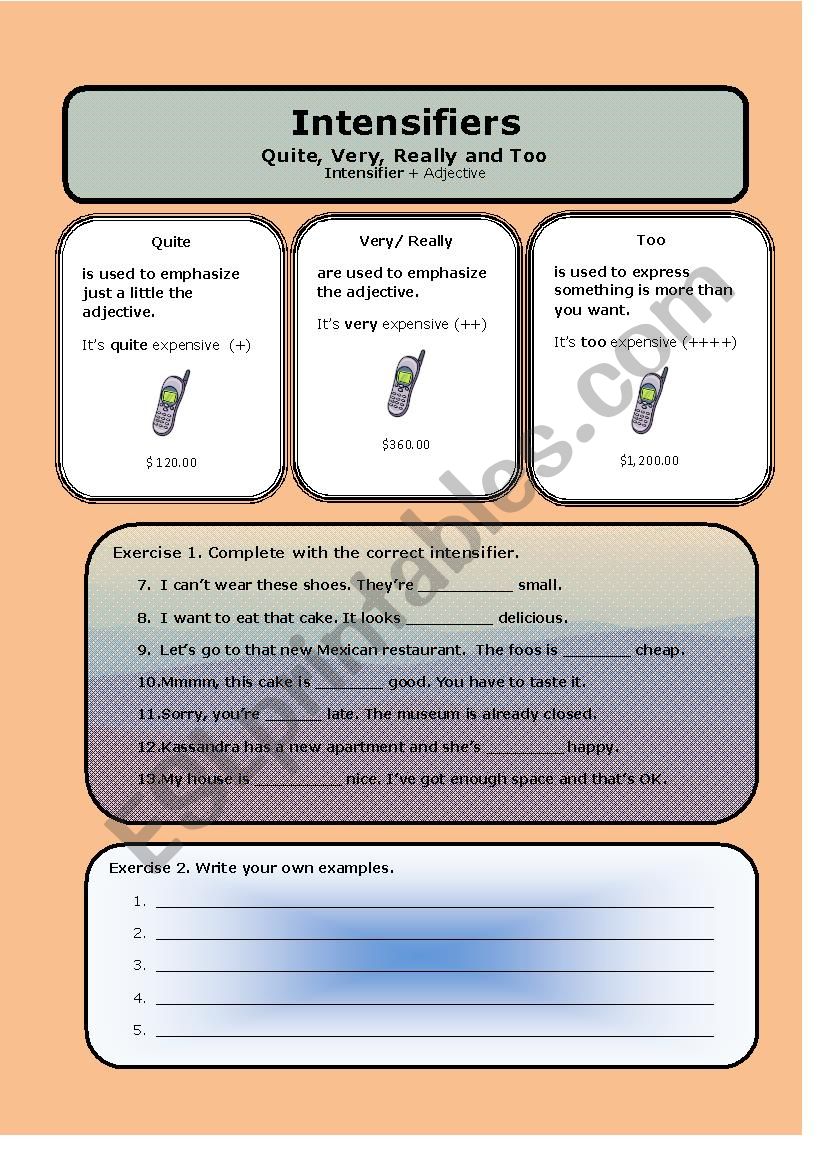

Still, there are some modifiers, which can be attached to extreme (strong) adjectives. Because adjectives disgusting and awful already contain in their meaning modifier ‘very’ (disgusting – very unpleasant, awful – very bad). The examples of such adjectives are following:ĭoesn’t it sound strange – very disgusting or very awful? – Sure it does. In English there are some adjectives (non-gradable/ strong/ extreme), which cannot be modified with these words because they already have an extreme meaning. Nevertheless, not all modifiers can be used with all adjectives. But what if the difference is huge or tiny? Such modifiers can help us to show the degree of difference between these 2 objects. I’m sure you remember the function of comparative adjectives (to compare 2 and more things/people, etc.).

Giraffe 1 is a bit/a little taller than giraffe 2. You can apply some modifiers to intensify comparative adjectives too. The question is: Can modifiers be used with comparative forms of adjectives? – Yes, they can. Pay attention, that in the examples above, positive adjectives (the first, original form of adjective) are used. So, examples show us, that intensifiers (modifiers), put before the adjectives hot and cold, give them another shade, make them more intense or less intense. Let’s start with a list of the most commonly used modifiers.
#Comparison intensifiers pdf how to#
In this article we are going to not just make a list of such intensifiers, but also find out when to use them and how to use them. There are such well-known intensifiers as: very, really, absolutely, totally, etc. They are mostly used in oral speech to make it more vivid and emotional. Do you want to make your speech more intense and brighter? Does it bother you why you can’t say very awful? Don’t stop reading this article and you will clear it out!Īdjective modifiers, also called intensifiers, are words which are placed before adjectives to give additional detail and emphasis to them.


 0 kommentar(er)
0 kommentar(er)
